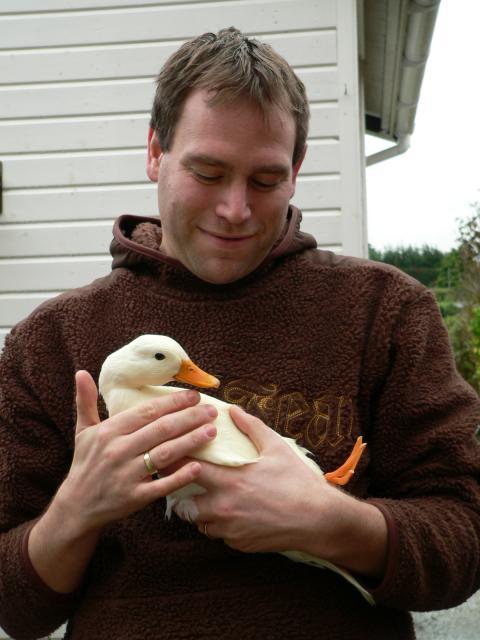Leahin,
Well I think you're great. If you come to something fresh then you go by what you're told. Coming to this website however is the best idea ever. These guys help me out on a weekly basis. So now my advice to you? PREDATOR PROOF YOUR BACKYARD, GET A POOL AN GET SOME DUCKIES IN IT!!! You will not regret getting them as pets. They are the cutest, funniest most rewarding little people. Look, look how cute they are:

PS
Doog wouldn't survive two minutes in the wild. He can barely go five minutes in the back garden without yellin for something!
Well I think you're great. If you come to something fresh then you go by what you're told. Coming to this website however is the best idea ever. These guys help me out on a weekly basis. So now my advice to you? PREDATOR PROOF YOUR BACKYARD, GET A POOL AN GET SOME DUCKIES IN IT!!! You will not regret getting them as pets. They are the cutest, funniest most rewarding little people. Look, look how cute they are:

PS
Doog wouldn't survive two minutes in the wild. He can barely go five minutes in the back garden without yellin for something!


